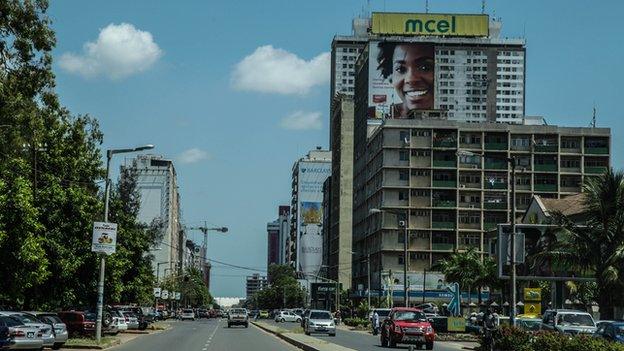Working Lives: Maputo
- Published

Mozambique is a country full of hope, promise and a booming economy after difficult times.
Two decades of civil war ended in 1992 but left the country dependent on international donors and it has struggled to rebuild.
But now with one of the world's largest new coal finds and a growing tourist industry, the capital city of Maputo is booming.
For Working Lives, the BBC's Laeila Adjovi travelled to Maputo to meet five people who live and work in a country that is one of Africa's emerging success stories.
In a country undergoing major transformation, Clothilde Maita's job as one of Mozambique's three female train drivers seems only fitting. As such, she is typical of many Mozambican women who relish a challenge.
Juneide Lalgy, a transport tycoon, is another person who thrives on a challenge. Starting with two lorries loaned by his father, he has built one of the biggest private companies in Mozambique. But he has used his success to help others from school children to aspiring young footballers.
Very few people would answer a job advert to work with rats, but Catia Rodrigues is happy she did. Now Catia and her very special rodents are helping Mozambique fight tuberculosis, a deadly disease of that kills 50,000 Mozambicans every year.
Ramos Saide is building the new Mozambique, literally. His construction skills help provide the growing middle class with their prized new houses. His own home, just three square meters (yards), stands in stark contrast to the smart villas where he spends his working days.
Natural resources may be booming now in Mozambique, but the country has always been rich in dance and music and Perola Jaime is considered one of the country's national treasures. From her early years as a famous dancer, to choreographer and mentor to the national dance company, Perola embodies the spirit of the country.